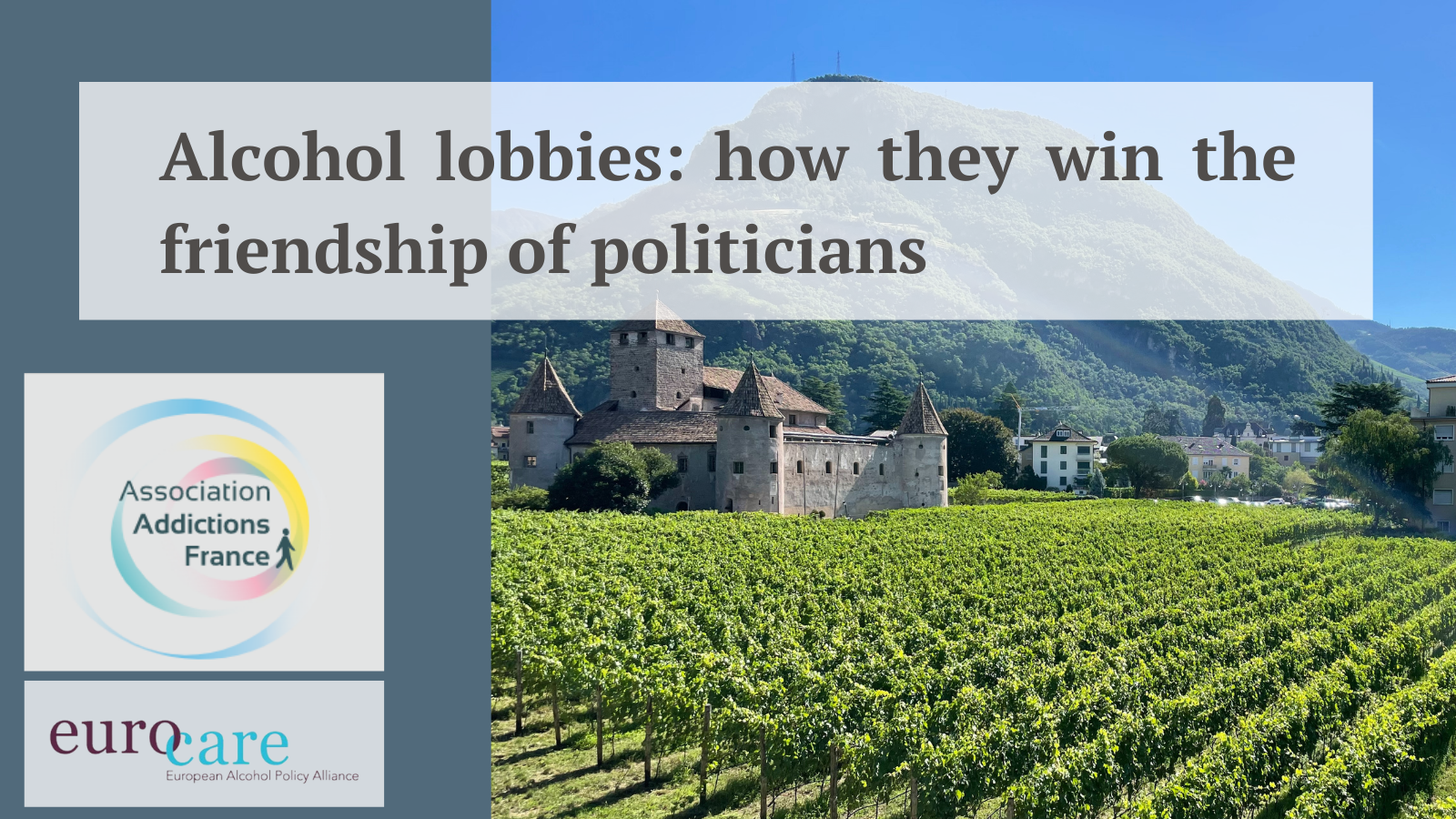Alcohol lobbies: how they win the friendship of politicians (2)
English translation of a blog article written by our French member Association Addictions France.
The Qatargate has highlighted the opacity of the intervention of industrial and state lobbies at the European Union level. Thus, in an apparently commendable effort at transparency, the President of the European Parliament, Roberta Metsola, who is leading attempts to tackle corruption, declared a trip to Burgundy paid for by a French wine federation.
The Maltese politician insists that she is the first president to be transparent about her travels. Duly noted. However, this "transparency" is only partial and does not exhaust all the questions that this invitation can and must raise about the lobbying of alcohol producers. Indeed, this stay took place on October 22 last year in a medieval castle-hotel in Burgundy at €350 per night (plus tax) and included a five-course dinner. This is far from a working meal, especially when her husband enjoyed the same treatment.
This stay was only made public in January 2023, with the Qatargate corruption scandal casting doubt on the integrity of members of the European Parliament. Without the scandal, this visit would probably have remained unnoticed. It is one of the latest illustrations of the wine lobby's long-standing strategy of influence to curry favour with politicians. Let us recall that during the last (successful) operation to weaken the Evin Law in France, the companion of the President of the Republic was also invited by a wine brotherhood.

The brotherhood that this time received Roberta Metsola, the Knights of the Tastevin, follows the same logic. The general intendant of the brotherhood, Arnaud Orsel, told Politico that he had welcomed her as "a lover of wine and in her capacity as President of the European Parliament". It is, therefore, as much the woman as the function that interests the lobby. Already in 2021, Emmanuel Macron and German Chancellor Angela Merkel had the honour of being named "grand officers" of this same brotherhood. At a time when measures concerning alcohol are on the European agenda (labelling, health warnings, European cancer plan), this lavish visit is problematic. The European Parliament already distinguished itself last year by its opposition, during the adoption of the report on the fight against cancer, to the recognition of the scientifically proven link between alcohol consumption and cancer, and to the need to act in this regard. Here again, the commercial interests of the alcohol lobbies, French and Italian in the forefront, prevailed, against science but above all against the health of Europeans.
By accepting a luxurious invitation, which only a wealthy lobby can afford, Ms Metsola is endorsing the arguments of a lobby which work against health. One might ask whether the President of the European Parliament would accept with the same ease a working and exchange session on alcohol with European health actors, and in particular Eurocare, a leading organisation in the field of alcohol risk reduction. The ability of the President of the European Parliament to treat her interlocutors fairly, regardless of their means, is at stake.
